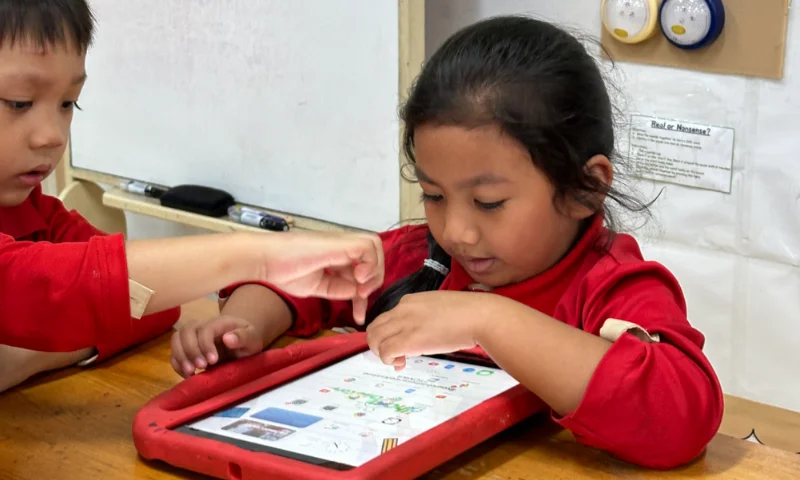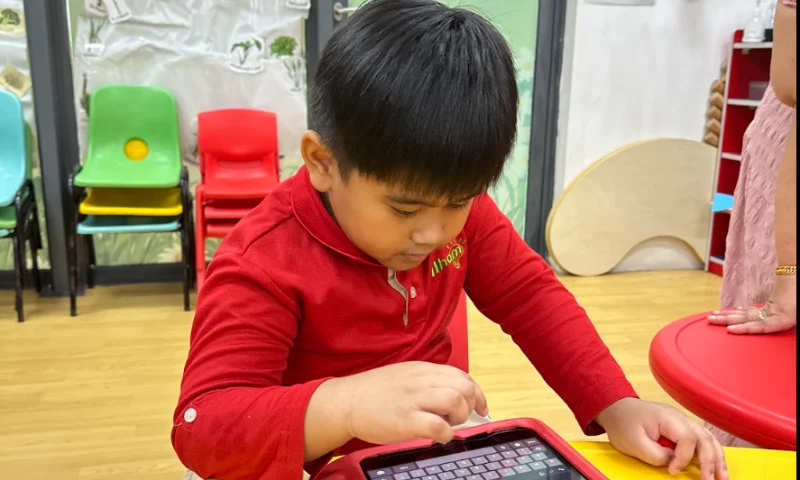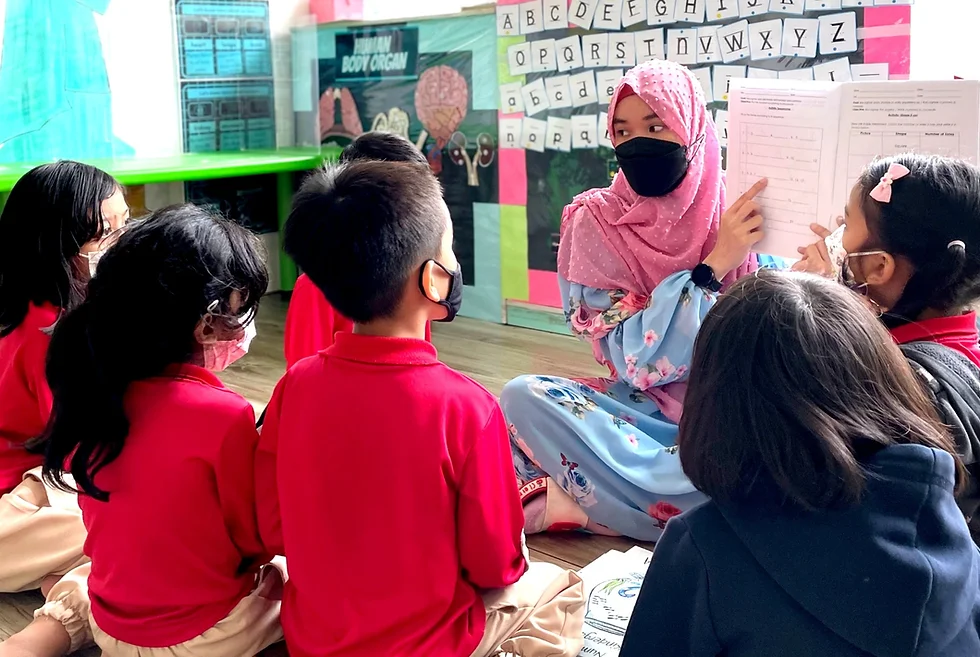At Ilham Child Care, we believe in nurturing young minds through innovative learning experiences. Today, our students explored the alphabet on iPads, showcasing teamwork as they helped each other out!
Digital Learning is one of the nine enrichment programs we offer, building essential skills like typing, storytelling, and using digital tools.
In this blog post, we’ll dive into the transformative role of technology in early childhood education, exploring its benefits, practical applications, and how it’s shaping the future of learning.

The Evolution of Technology in Early Childhood Education
Gone are the days when early education relied solely on chalkboards and textbooks. Over the past decade, technology has revolutionized how children learn and interact with the world around them. From passive media like television to interactive tools like tablets and smartboards, the shift has been remarkable.
Today, adaptive learning technologies and gamification are at the forefront of modern classrooms. These tools not only make learning fun but also cater to individual learning styles and paces. According to recent studies, over 70% of preschools now incorporate digital tools into their curriculum, highlighting the growing importance of technology in early childhood education.
Benefits of Technology in Early Childhood Education
Personalised Learning
Adaptive software tailors educational content to each child’s unique needs, ensuring no one is left behind. For example, apps like ABCmouse and Khan Academy Kids adjust difficulty levels based on a child’s progress.
Enhanced Engagement
Interactive apps and games turn learning into an exciting adventure. Whether it’s solving puzzles or creating digital art, children are more motivated to explore and learn.
Skill Development
Technology helps children develop fine motor skills, problem-solving abilities, and digital literacy—essential skills for the 21st century.
Inclusivity
Assistive technologies, such as speech-to-text tools and screen readers, ensure that children with special needs can participate fully in the learning process.
Parent-Teacher Collaboration
Digital platforms like Brightwheel and ClassDojo enable seamless communication between parents and teachers, making it easier to track a child’s progress and address concerns.
Practical Ways to Integrate Technology in Early Childhood Education
Interactive Learning Tools
Tablets and smartboards are excellent for hands-on learning. Apps like ScratchJr introduce coding concepts, while interactive whiteboards make group activities more engaging.
Digital Storytelling
Encourage creativity by letting children create their own stories using digital tools. Apps like Puppet Pals and Book Creator allow kids to design characters, write narratives, and even record their voices.
STEAM Activities
Introduce science, technology, engineering, arts, and math (STEAM) concepts through interactive media. For example, children can explore basic physics with apps like Toca Boca or create digital art with Procreate.
Balanced Screen Time
While technology is powerful, it’s essential to balance screen time with traditional play-based learning. The American Academy of Pediatrics recommends no more than one hour of screen time per day for children aged 2 to 5.
Teacher Training
Educators play a crucial role in integrating technology effectively. Professional development programs ensure teachers are equipped to use digital tools to their fullest potential.
Challenges and Solutions
While technology offers numerous benefits, it’s not without challenges. Excessive screen time can lead to developmental delays, reduced physical activity, and sleep issues. To mitigate these risks, parents and educators should follow screen time guidelines and encourage offline activities.
Privacy and security are also concerns. Ensure that digital platforms comply with data protection regulations and teach children about online safety.
Finally, resource disparities can limit access to technology in underserved areas. Governments and organizations must work together to provide equitable access to digital tools.
How does technology customize learning for children?
Adaptive software tailors content to individual learning styles and paces, ensuring each child receives personalized support.
What are the risks of excessive screen time?
Excessive screen time can lead to developmental delays, reduced physical activity, and sleep issues. Balancing screen time with offline activities is crucial.
How can parents support digital learning at home?
Parents can co-view and engage with children during tech activities, enhancing learning outcomes and fostering meaningful interactions.
What role do teachers play in tech-integrated classrooms?
Teachers guide and mentor students, ensuring technology is used effectively and complements traditional teaching methods.
Empower Young Minds Today!
Technology is no longer a luxury—it’s a necessity in early childhood education. By embracing digital tools, we can create engaging, inclusive, and personalized learning experiences for our children.
At Ilham Child Care, we’re committed to empowering young minds through innovative programs like Digital Learning. Join us in shaping the future of education – one child at a time.

 Take the First Step
Take the First Step
